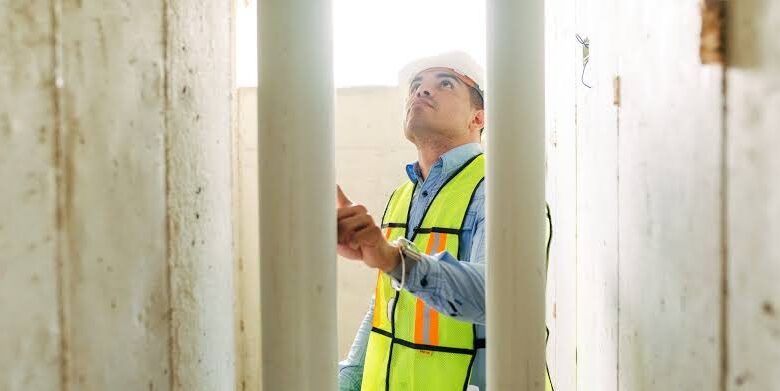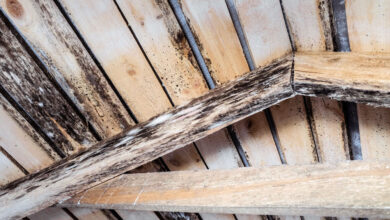The Role of Building Inspections in Home Renovations: A Must-Consider

Home renovations can be exciting projects for homeowners. But have you considered the role of building inspections? Building inspections are crucial in the renovation process.
They ensure the structural integrity of your home. Why is this important? Because safety should always come first.
Inspectors check for hidden issues that could pose risks. They also ensure that repairs meet local building codes. This step can save time and money in the long run.
It adds a layer of security to the renovation journey. So, are you ready to learn more about inspections? Let’s dive in.
Understanding Building Inspections
Inspections play a vital role in home renovations. These inspections cover various aspects of a property.
An inspector checks the foundation, roof, plumbing, and electrical systems. They look for structural damage and safety hazards. Inspectors ensure everything meets current building codes.
The process usually begins with a visual assessment. Inspectors take detailed notes and photos. They highlight any areas needing attention.
A comprehensive report follows the inspection. Homeowners use this report to address repairs. The goal is to fix problems before they become major issues.
Inspections help maintain the property’s value. They also offer peace of mind to homeowners. These inspections are a crucial step in any renovation project.
The Importance of Structural Integrity
Structural integrity ensures the safety and longevity of your home. A solid foundation and strong structural elements are essential for any building. During renovations, it’s vital to maintain this integrity.
Compromised structures can pose serious risks to occupants. These risks include potential collapses leading to injury. Regular inspections help identify flaws in the structure.
Early detection prevents minor issues from becoming major problems. Proper maintenance reduces costly repairs in the future. Ensuring structural integrity can increase property value.
Prioritizing structural integrity is crucial during home renovations. It safeguards both residents and investments.
Identifying Hidden Issues
During home renovations, identifying hidden issues is crucial for success. Inspectors often find problems not visible to the untrained eye. These issues include:
- termite damage
- mold growth
- faulty wiring
Hidden problems can compromise the safety of your home. It is crucial to uncover them early in the process. Regular inspections help detect these concerns before they escalate.
Identifying hidden issues can save time and money. Addressing these problems during renovations ensures a safer living environment.
Homeowners can avoid surprise costs and delays by being proactive. Thorough inspections help maintain the quality of home renovations. This step ensures that renovations are effective and secure.
Ensuring Compliance With Local Building Codes
Ensuring compliance with local building codes is vital for any renovation project. These codes set the minimum standards for safety and quality. They cover various elements, such as:
- electrical wiring
- plumbing systems
During renovation planning, it’s crucial to understand these regulations. Working with licensed professionals helps achieve compliance. Experienced contractors are familiar with local codes and can guide homeowners.
Inspections confirm that the renovation work meets all legal requirements. Non-compliance can result in fines and costly rework.
Adhering to building codes protects the property and its occupants. Proper compliance ensures the renovation is safe and up to standard.
Saving Time and Money Through Inspections
Inspections are vital for budget-friendly home renovations. Inspections reveal issues before renovations begin, saving time. Potential problems detected early prevent costly future repairs.
Identifying faults at the start keeps the project timeline on track. Timely interventions reduce unexpected delays in the renovation process. By catching issues early, you can avoid expensive fixes later.
Regular inspections help allocate your renovation budget more efficiently. This proactive approach minimizes financial surprises, protecting your investment.
Neglecting inspections can lead to unplanned expenses. Inspections ensure that the renovation remains within budget. Investing in inspections upfront saves time and money.
Enhancing Safety and Security
Home renovations present an opportunity to improve safety and security. Inspectors evaluate various elements to identify potential hazards. It includes checking for structural weaknesses and faulty wiring.
Ensuring fire safety is also a significant concern. Installing fire-resistant materials enhances protection against possible fires. Upgrading security systems, such as alarms and locks, is crucial.
Renovations can include adding motion sensor lights around the property. Secure windows and doors can deter possible intruders. All these measures enhance the safety of a home.
Prioritizing safety and security ensures a secure living space for everyone. Proactive steps during renovations help safeguard your family and belongings.
The Inspection Process: What to Expect
The inspection process is thorough and follows set procedures. An inspector will visit your home to assess. They start with a visual examination of the property.
Inspectors make notes and take photos of key areas. Each area is checked for visible signs of damage or issues. It includes:
- foundation
- roof
- other structures
They examine plumbing, electrical, and HVAC systems. Inspectors look for leaks, faulty wiring, and inefficiencies. After the on-site inspection, they compile a detailed report.
The report highlights areas in need of repair or improvement. Homeowners use this information to plan necessary renovations. The entire process ensures your home is safe and compliant.
Choosing a Qualified Inspector
Selecting a qualified inspector is crucial for effective home renovations. The right inspector ensures that your property is examined. Verify their credentials and certifications.
Qualified inspectors should have relevant licenses for their work. Look for professionals with extensive experience in building inspections. It’s wise to check reviews and ask for references from previous clients.
Ensure they offer a comprehensive new home construction inspection service. This way, you can be confident in their ability to spot potential issues.
Communication skills are also crucial; they should explain findings clearly. Choosing the right inspector safeguards your renovation investment. A qualified inspector ensures a smoother, safer renovation process.
Learn More About the Role of Building
Inspections in a Home Renovation
Building inspections are crucial for any successful renovation. They identify hidden problems before they become significant issues. Inspectors ensure compliance with local building codes, preventing legal troubles.
Regular inspections save time and money in the long run. They provide peace of mind for homeowners during the renovation process. Prioritizing inspections helps maintain structural integrity and safety.
Always hire a qualified inspector for thorough and professional assessments. These inspections are a smart investment for any renovation project.
Did you find this article helpful? If so, check out the rest of our site for more informative content.



